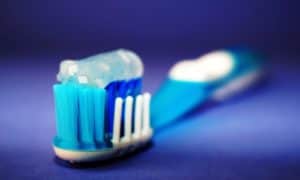
No Ice, Ice Baby
When the thermometer begins to soar, it’s so easy to run to your freezer for a big cup of ice. Be very careful chewing on hard items like ice because they can damage your teeth. If your drinks have ice in them, try to avoid chewing on them or drink something cool without ice altogether.
Make Your Back-to-School Appointment
One of the biggest tips your Ann Arbor dentist can give you is to remember to schedule your family’s back-to-school visits now so that when summer winds down, you’re ready to go. Appointments can fill up fast in the fall, so call us now to get scheduled for your cleaning.
Limit Sugar and Sweets
Sugary foods and beverages are everywhere, especially during summertime when it’s easy to splurge on a vacation. Sodas and alcoholic drinks are packed with sugar, not to mention all of the delicious dishes that will come your way. Try to limit your sugar intake, and remember to brush your teeth after meals — ideally, twice a day, while flossing once.
Make Sure to Stay Hydrated
Drinking water benefits both your oral and overall health. Drinking water is good for you every day, but it can be necessary for the summer when it’s easy to become dehydrated, especially in excessive heat. You’ll want to avoid dry mouth that promotes bacterial growth due to having less saliva in your mouth that helps to wash away plaque. Prevent tooth decay and promote your overall health by staying hydrated and happy this summer.
Have Toothbrush Will Travel
Don’t forget to take your toothbrush with you if you’re heading out of town for a summer vacation. Keep your toothbrush free from bacterial growth in your luggage by properly storing it during travel. Make sure your toothbrush remains dry until you arrive at your destination. Brushing and flossing on vacation are still important!
Watch Out for the Sun
Don’t forget to wear plenty of sunscreen on your body this summer, including your lips! Why? Because your lips are very sensitive and susceptible to getting sunburn, just like the rest of your body. Remember to always apply a lip balm with a sun protection factor or SPF of at least 15. Over time, consistent sunburns on your lips can lead to other health issues, including skin or oral cancer. In short, don’t forget to pack your lip balm and protect your lips while you’re enjoying the outdoors.
As your trusted dentist in Ann Arbor, know that we’re here to help with all of your dental needs during the summer months and beyond. Call us for an appointment today!
We’re always welcoming new patients at all of our dental offices in Ann Arbor, Canton, Farmington Hills, and Livonia.

4 Signs of a Cavity
Symptoms of a cavity can differ from person to person and can be pretty subtle, so much so that you may never have feelings of discomfort and you may not know decay is present until your next appointment with your dentist in Livonia . Here are some common tell-tale signs that a cavity may be lurking in your tooth.
1. Toothache
The most common sign of a cavity is, of course, a toothache. Tooth pain can occur suddenly, and there are many times when a toothache does not have any clear sign as to what caused the pain in the first place. However, any pain in the mouth is typically a sign that something is wrong, and you should schedule an appointment with your dentist in Livonia . Most often, lingering tooth pain that lasts for a few days is a sign of a cavity.
2. Sensitivity
Similar to a toothache, tooth sensitivity may also be a sign of a cavity. Unlike a toothache, however, sensitivity usually causes shooting pain when eating or drinking something hot, cold, or sweet and may not be persistent. Sensitivity can occur when the protective layer of tooth enamel is worn away, leaving nerves and roots exposed to heat, cold, sugar, as well as the bacteria that cause cavities.
3. Staining
There are also some key signs of a cavity that are visible such as tooth staining. While some types of discoloration are natural, such as staining due to coffee, tea, or red wine, other stains can indicate a problem. If you notice a new tiny white spot on your tooth or darker areas of brown or gray, it’s likely that decay is present and is progressing deeper into the tooth. Any new signs of discoloration should be discussed with your dentist.
4. Pitting
Another visual cue that a cavity may be forming is a pit or hole in a tooth. These two symptoms may also start with a small white dot and progress into pitting. Now, keep in mind, some of the most common places for cavities to develop are between the teeth where you won’t necessarily be able to see the pitting. This is one of many reasons why it’s so important to see a dentist near you every six months.
How to Prevent Cavities
Besides seeing your dentist at least twice a year for cleanings, exams, and x-rays, it’s also important to make sure you’re taking great care of your smile at home. Some of the best ways you can help prevent cavities are to:
We recommend that every patient visit the dentist at least every six months to check for any early signs of decay when a cavity is typically easy to fix with filling. More severe cavities may require additional treatment such as a root canal or extraction. We’re always accepting new patients at all of our dental offices in Ann Arbor, Canton, Farmington Hills, and Livonia.

Different Types of Mouthwash
Mouthwash can be a helpful addition to your oral hygiene routine as it can help kill mouth bacteria that could otherwise lead to cavities and other problems. While there are a variety of different types of mouthwash available, most over-the-counter options aim to kill these bacteria and prevent decay. It’s important to note that some mouthwash is alcohol-based, and others are non-alcohol-based.
If your mouthwash gives you that burning sensation when you rinse with it — it most likely contains alcohol. Alcohol-based mouthwash may seem like it’s working better because of this tingling, but that’s not necessarily true.
Some patients find the feeling of alcohol-based mouthwash too intense. A good alternative for this would be a non-alcohol-based mouthwash. These products can still help remove bacteria just without the burn.
If you choose to use mouthwash, make sure you choose one with the ADA Seal of Acceptance. Additionally, your dentist in Canton can recommend the best mouthwash for you.
The Best Way to Use Mouthwash
Mouthwash can be used every day if instructed by your dentist. However, make sure to also follow the instructions on your specific product, including how often to use it and how much to use. Keep in mind, mouthwash isn’t recommended for children under six years of age as they may not have the proper mechanics to swish and spit effectively.
Mouthwash Isn’t a Substitute for Brushing
Even though rising with mouthwash can further kill off bacteria, it is not meant to substitute for brushing and flossing. Mouthwash isn’t designed to be used on its own to keep teeth decay-free. It’s still important to brush and floss your teeth daily, as well as see your dentist in Canton at least twice a year for professional cleanings and exams.
Signs You Should Stop Using Mouthwash
While most patients shouldn’t experience any side effects of mouthwash, it is possible. Here are some signs that you should stop using mouthwash and talk with your dentist in Canton:
If you do experience any of these side effects, discontinue use and talk with your dentist. Additionally, if you have known allergies, make sure to check labels carefully before purchasing.
Your dentist is here to help you make the best decisions about your oral health. Make sure you talk about any concerns you have about using mouthwash at your next appointment. We’re always happy to help.
We’re always accepting new patients at all of our dental offices in Ann Arbor, Canton, Farmington Hills, and Livonia.

Communicate With Your Dentist in Farmington Hills
One of the most important things you can do when you’re visiting your dentist after a long time is to be upfront and honest with your dentist and dental team. Explain your individual situation as well as any fears or worries you may have. We promise to welcome you with open arms and pride ourselves on our ability to care for patients in a gentle, caring, and non-judgmental way.
Expect That You May Need Some Treatment
Dentists recommend visits every six months because our oral health can change quickly, and it’s important to catch any problems or potential problems early. However, if it’s been a few years since your last visit, that’s ok. We’re just glad you’re back. You should expect that some things in your mouth may have changed since your last checkup, and you may need some more initial treatment to get your smile back to optimal health. Entering your appointment with the mindset can help put you at ease.
Stay Stress-Free
We understand that seeing your dentist can be stressful, especially if it’s been a while since your last checkup. Scheduling your appointment first thing in the morning or at the end of your day can help ease any additional stress. Also, if you can, consider giving yourself plenty of time to get to your appointment. That way you won’t be faced with additional stressors such as traffic or worry about being late.
What To Expect
Knowing what to expect when you walk into the office can help you relax. First, you will be welcomed by our caring and friendly team. They may ask you to complete or confirm any paperwork, such as your health history form. Then, you’ll have a gentle exam, perhaps with new dental x-rays, so we can get a thorough understanding of your current oral health. The most important thing to remember throughout your appointment is to communicate with your team. Your dentist in Farmington Hills and the entire dental team is here to help you with anything you need.
If it’s been a while since you’ve seen a dentist, we welcome you to schedule an appointment at our office. Our team is dedicated to caring for every member of our community and will work with you to get your smile back in the best shape possible, no matter how long it’s been since you’ve sat in the dental chair!
We’re always accepting new patients at all of our dental offices in Ann Arbor, Canton, Farmington Hills, and Livonia.

What Is a Cavity?
Cavities are so common in the United States that the CDC says 90% of Americans over the age of 20 have had at least one cavity in their lifetime. These tiny areas of tooth decay, if left untreated, will only become bigger and deeper and also become more difficult to treat. Cavities begin as a small hole or pit in a tooth where acid or bacteria has attacked the enamel. During this stage, cavities can easily be fixed with a filling from your dentist in Ann Arbor. However, cavities that continue to progress can sometimes require more complex treatment such as a root canal or even tooth extraction.
Surprising Things The Cause Cavities
We’ve already shared that many people think cavities are a problem of eating too much sugar, and while that may be the case, there are other reasons why a cavity develops.
If a patient’s mouth is dry it’s more likely that they will have cavities. Usually, saliva will help neutralize acids and rinse away bacteria that can cause cavities. But when saliva production is too low and the mouth feels too dry, bacteria and acids are left lingering around to cause damage to the enamel and, you guessed it, cause cavities.
Besides sugar, there are other foods that can increase the risk of cavities. The two most concerning are acidic foods, such as citrus fruits and foods with a lot of carbohydrates. Acidic foods and drinks further aid in the mouth acid’s ability to weaken enamel while carbs fuel the bacteria, allowing them to thrive.
There are many reasons why it’s important to brush your teeth twice a day and floss once a day, but one of the main reasons is to prevent cavities. Brushing your teeth in the morning and at night will remove plaque and plaque acids that have built up throughout the day. Flossing reaches those tricky areas that a toothbrush can’t reach and where cavities are more likely to develop.
Cavity Symptoms
Patients may experience different symptoms, but some of the most common signs of a cavity include:
If you think that you may have a cavity, call your dentist in Ann Arbor to schedule an appointment.
Even though cavities are incredibly common, there are things you can do to reduce your risk of getting one. Make sure you brush and floss your teeth regularly, limit your intake of sugary, acidic, or high-carbohydrate foods, and drink plenty of water daily. Of course, you should also see your dentist every six months for a checkup.
We’re always accepting new patients at all of our dental offices in Ann Arbor, Canton, Farmington Hills, and Livonia.

There are different types of bad breath, also called halitosis, and different smells can mean different things.
While there are certainly several serious conditions that can cause bad breath, oftentimes bad breath is a symptom of something going in the mouth.
The most common underlying cause of bad breath is a buildup of bacteria in the mouth. This can occur when someone has poor dental hygiene. Your Ann Arbor dentist always recommends brushing your teeth twice a day and flossing once a day to remove bacteria. However, when this isn’t done regularly, bacteria can linger around and cause bad breath. Make sure you’re brushing your teeth twice a day for two minutes and taking the time to floss in between each tooth.
Another top cause of bad breath is gum disease. Gum disease is a serious problem that can lead to tooth loss and other problems throughout the body such as the increased risk of stroke, heart disease, and respiratory complications. Gum disease, also known as periodontal disease, is caused when bacteria find their way into the gum tissue and hide out. These bacteria can be tricky to remove. This buildup of bacteria can once again lead to foul breath. Gum disease needs to be treated quickly or it will be irreversible. This is just one of the reasons why it’s so important to see your dentist in Ann Arbor every six months.
Dry mouth can result in much more than that gross, annoyingly dry feeling. It can also cause bad breath and other dental problems. Dry mouth results from a lack of saliva production. Saliva is what typically helps wash away bacteria and neutralize acids in the mouth. Without enough of it, bacteria tend to linger around and can emit an unpleasant odor. There are several things that can cause dry mouth including certain medicines or dehydration. Your dentist in Ann Arbor recommends drinking plenty of water throughout the day and reviewing your medications and side effects with your medical doctor.
Chronic bad breath should be taken seriously. So if you find yourself shying away from talking to people because you’re embarrassed by the way your breath smells, schedule an appointment with your dentist as soon as you can.
We’re always accepting new patients at our dental offices in Ann Arbor, Canton, Farmington Hills, and Livonia.

Things That Require A Dental Appointment
The environment in the mouth is ever-changing, and there are times when these changes can spark concern and have you wondering if you should schedule a dental appointment. Let’s take a look at some of the most common symptoms that should warrant a visit to your Canton dentist.
Temporary bouts of bad breath are bound to happen, especially if you eat something particularly fragrant such as garlic or onions. However, if bad breath lingers and doesn’t go away even after you brush your teeth, it may be a sign of something serious. Bad breath could mean gum disease, dry mouth, or even kidney problems.
Mouth sores including ulcers can be annoying and sometimes embarrassing. Many times they are harmless and should go away on their own. However, if they don’t heal within two weeks or get worse, it’s time to see your dentist. Mouth sores that don’t heal may be a sign of oral cancer or other problems.
Tooth sensitivity can trigger shooting pains through your teeth, which is pretty uncomfortable. If you have sensitivity to hot or cold foods or drinks, especially if it’s new for you, you should see your dentist in Canton. This can be a sign of decay, weakened tooth enamel, or a chipped or cracked tooth.
Gums shouldn’t bleed when you brush or floss your teeth. They also shouldn’t be inflamed or swollen. However, those with gum disease may experience red, painful, swollen gums. It’s important to have this checked out by your dentist as gum disease can lead to other problems throughout the body such as an increased risk of heart disease.
Pain anywhere in or around the mouth may require a visit to the dental office. From a toothache that can make it difficult to chew to a painful jaw that hurts to open and close, pain around the mouth shouldn’t be taken lightly and is usually a sign telling you that something isn’t quite right. See your dentist quickly.
If you notice any of the signs above, schedule an appointment with your dentist in Canton as soon as possible to get relief.
We’re always welcoming new patients at our dental offices in Ann Arbor, Canton, Farmington Hills, and Livonia.

Why Are Dental Cleanings Important?
A common piece of advice from dentists everywhere is that all patients should visit at least twice a year for checkups and dental cleanings. But why twice a year? Do you still need these cleanings if you brush and floss your teeth at home? Truthfully, yes, dental cleanings are necessary even if you take excellent care of your teeth. Checkups and cleanings with your dentist in Farmington Hills help:
Prevention Is The Best Medicine
Brushing your teeth twice a day for two minutes each time and flossing in between each and every tooth once a day is the best way to take care of your teeth in between dental checkups. However, these habits alone aren’t enough to fully protect your teeth from cavities and other problems. You need to also see your dentist in Farmington Hills at least twice a year so we can prevent any problems from occurring or stop small problems from becoming big problems.
If it’s been longer than six months since your last dental checkup and cleaning, we welcome you to call our office to schedule an appointment today. We’re always accepting new patients and would love to see you!
We’re always accepting new patients at our dental offices in Ann Arbor, Canton, Farmington Hills, and Livonia.

Taste & Smell
Perhaps the most well-known symptom of a COVID-19 infection is the loss of taste or smell. While this doesn’t happen to everyone, it is a fairly common side effect. There is still some debate about why this happens. One of the potential explanations is that since COVID is a respiratory virus, and the respiratory system includes the nose and the mouth, the cells included in these areas can be infected and cause inflammation. In turn, this inflammation can change a person’s ability to smell and taste. More research is needed to conclusively determine the cause, but this is a current working theory.
Ulcers
Medical researchers who continue to study COVID-19 suggest that the infection damages blood vessels in the body, including in the mouth. According to The Angiogenesis Foundation, when blood vessels are damaged, it prevents oxygen from being delivered throughout the body and can basically starve the tissue. If this happens in the gums, the result can be ulcers. Additionally, a study published in the Journal of Dental Research found that over 80% of patients that were hospitalized with COVID-19 noticed lesions or ulcers in their mouths. While most ulcers should go away and heal on their own as you get better, if an ulcer lasts longer than two weeks (and you’re feeling better and testing negative), you should see your dentist in Livonia.
Dry Mouth
Dry mouth is one of those things that doesn’t just affect COVID-19 patients. In fact, dry mouth can be caused by numerous things such as medication, smoking, dehydration, and some diseases. However, COVID-19 patients and “long-haulers” tend to experience new or worsening dry mouths. The virus that causes COVID-19 can affect the salivary glands and reduce their ability to produce enough saliva. Without saliva, we’re left with the feeling of a dry, desert-like mouth as well as an increased risk for developing cavities, gum disease, and other oral health problems. Your dentist in Livonia can often help relieve the symptoms of dry mouth, so make sure to mention this at your next appointment.
Gum Inflammation
We previously mentioned how infection can cause inflammation in the blood vessels but inflammation can also occur in other areas throughout the body. Brought on by a surge of white-blood-cell-rich blood to the infected areas, inflammation in the mouth, particularly the gums, can result in red, painful, swollen, and oftentimes bleeding gums. These symptoms may resolve on their own, but you should monitor recovery at home and schedule an appointment with your dentist in Livonia if you notice changes or if it’s not getting better. Red, swollen gums that tend to bleed can also be a sign of gum disease, which can be serious. So it’s better to get checked out sooner rather than later.
The prevalence of COVID-19 continues to be challenging. During these times, and all times, we encourage our patients to do everything they can to keep themselves and their teeth healthy, including brushing and flossing daily and maintaining routine dental checkups.
We’re always accepting new patients at our dental offices in Ann Arbor, Canton, Farmington Hills, and Livonia.

The 3 S’s
Choosing the right toothbrush can be as easy as considering the three S’s – size, shape, and softness. However, this is just the first step. There are other things to consider when buying your next toothbrush, and your dentist in Canton is always here to help.
Size
Both the size of the toothbrush handle and the toothbrush head are important factors to consider. The handle should be sturdy and comfortable enough to hold for a two-minute brushing cycle and manipulate to cover all areas of your mouth. The toothbrush head should be an appropriate size to comfortably fit in your mouth. You should be able to reach your molars without discomfort. A brush head that’s too large can actually keep you from getting a thorough clean.
Shape
Bristles come in two different shapes – straight and rounded. Straight bristles are usually not recommended as they can cause gum damage and even enamel damage. Instead, most dentists recommend choosing rounded bristles. Round bristles are more gentle than straight bristles and still provide an excellent clean.
Softness
The last S to consider is how soft the bristles are. Toothbrush packaging will usually depict the density of the bristles by listing them as soft, medium, or hard. While it may make sense that the harder the bristles the better the clean will be, the opposite is true. Your dentist in Canton will most likely recommend using a soft-bristled toothbrush for most patients. The medium and hard bristles are more likely to harm gums or tooth enamel.
Manual or Electric?
There’s some debate about whether a manual toothbrush is better than an electric toothbrush, and truth is, it depends on a variety of factors. For example, if you travel a lot, a manual toothbrush may be better for you since it’s convenient. However, if you have trouble brushing your teeth with a manual toothbrush, an electric option may be more appropriate to make sure you’re brushing properly. Always consider your budget and lifestyle before choosing a manual or electric toothbrush.
The most important thing to remember when choosing a toothbrush is to make sure you select one that you will use regularly. You should brush your teeth twice a day for two minutes each time, and it’s important that your toothbrush is able to reach all areas of your mouth comfortably. Of course, your dentist in Canton will be able to help you pick out the best toothbrush for you. Just ask!
We’re always accepting new patients at all of our dental offices in Ann Arbor, Canton, Farmington Hills, and Livonia.